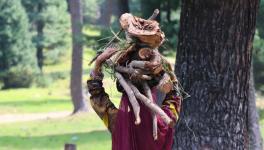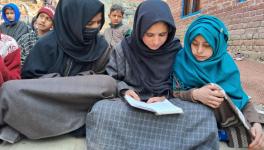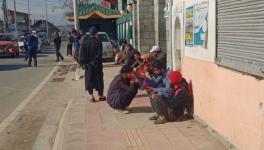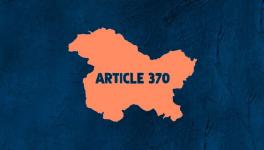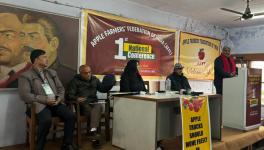Kashmir Witnesses Unprecedented Healthcare Crisis, Where Is Normalcy?
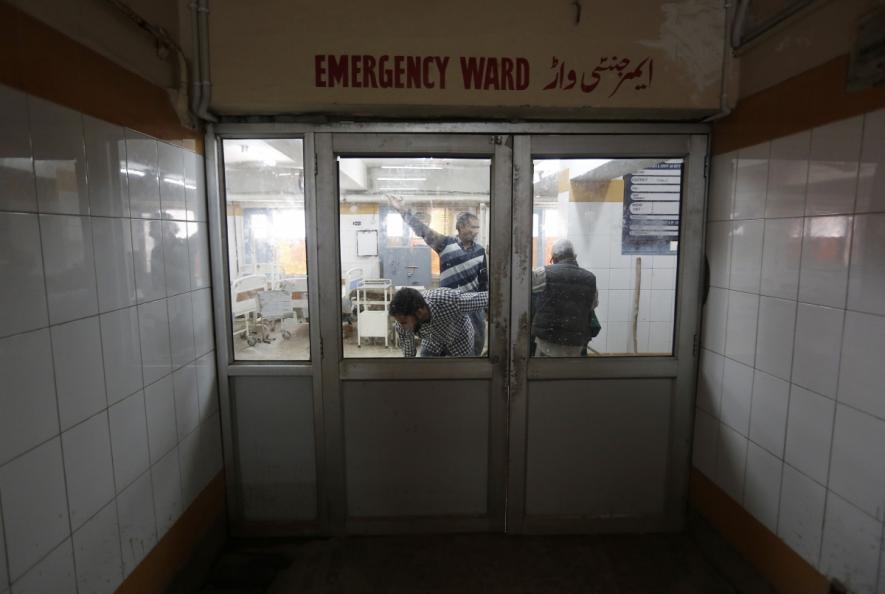
Image for representational purpose only. Courtesy: IBTimes India
Omar Salim Akhtar, a gold medallist urologist, was recently “whisked away” by the police for speaking to the media about the ongoing health crisis in the Kashmir Valley.
As per reports, Akhtar was holding a placard saying: ‘This is not a protest. This is a request.’ Speaking to BBC Urdu, Akhtar talked about the looming “humanitarian crisis”. “I have a patient who required chemotherapy on August 6. He came to us on August 24, but could not obtain the chemotherapy medicine," Akhtar was quoted by The Telegraph as saying. “Another patient whose chemotherapy drug had to be obtained from Delhi was unable to place an order for the drug. His chemotherapy has been postponed indefinitely,” he said.
Akhtar added that kidney dialysis patients could receive treatment only once a week and Kashmiris could not purchase medicines because ATMs had run out of money and internet was not working.
With each passing day, the Indian government’s claim of “normalcy” is being ruptured. The day to day survival of civilians in Kashmir is getting difficult. NewsClick had earlier reported that there is shortage of essentials in Kashmir including baby food, medicines and money too.
However, the Centre – which abrogated Article 370 on August 5 and has imposed a communication shutdown on the Valley ever since – has chosen to overlook the unprecedented health crisis in Kashmir.
Speaking to NewsClick, Dr Mudasir Firdousi, a Kashmiri and a prominent psychiatrist now based in London, said, “Arrest of Omar Salim Akhtar shows how desperate he must have been to come into the public domain even after knowing that there was a chance that he might get arrested. We cannot deny that this is a severe and unprecedented health crisis in Kashmir. In the absence of ambulances, phones and with the ongoing curfew, the question is how people living in the far-flung areas like Bandipora, Anantnag and Baramulla would reach the hospital.”
“It looks like we are going to witness many undocumented deaths because of the ongoing lockdown. Even if there are medicines available in the tertiary hospitals, it makes no difference if the people are unable to reach there. Older people, pregnant women and children are the most vulnerable. If people are not dying on the streets, they would die at homes if this lockdown continues. Cancer patients, dialysis patients, and diabetics have a little chance if there treatment is interrupted. To conclude, I would say Omar Akhtar’s episode should be seen as his desperate attempt to help his patients,” Firdousi added.
Scarcity of medicines
Aaqib* (name changed) had ordered an anticoagulant medication from Delhi for his father, which was to be delivered at his home in the Valley. But he is not sure whether the medicine has reached his father, as he is unable to contact his family. Speaking to NewsClick, Aaqib said, “A few days ago, my mother had called me from a police station saying that there are no blood thinners in the market, and they require it urgently. So, I ordered, but I live in a far-flung area, and there is a complete lockdown. Patients on anticoagulant medication also need regular blood tests; otherwise, there is a risk of bleeding. I am worried.”
There are many cases where locals are struggling to buy medicines or get their treatment done. In an account published by The Indian Express, journalist Adil Akhzer narrates how his sister suffered a miscarriage during the ongoing crisis: “The doctors at the hospital regret that the ban on communication prevented them from real time communication to the senior gynaecologist that could have saved the baby. My sister and her husband too have a regret — if the phones worked, maybe a single call could have saved their baby…. Our case is not the only one at the hospital. Every patient has his or her own story – of despair, agony and helplessness.”
Dead phone lines, low medical supplies and the inability to contact the doctors has led to delay in critical treatments in the Valley.
Apathetic Indian Medical Association
In a 900-word letter addressed to Richard Horton, editor-in-chief of the British medical journal Lancet, the Indian Medical Association (IMA) criticised the medical journal for its editorial piece on Jammu and Kashmir. On August 17, Lancet had published an editorial titled ‘Fear and uncertainty around Kashmir’s future’, which expressed concerns about the public health situation in Kashmir. The editorial read: “The militant presence raises serious concerns for the health, safety, and freedoms of the Kashmiri people.”
The editorial further said that “the protracted exposure to violence” had led to a “formidable mental health crisis” and had increased “anxiety, depression, and post-traumatic stress disorder”. In response to the editorial, IMA said that Lancet had “no locus standi on the issue of Kashmir” and the journal has “committed breach of propriety in commenting on this political issue”.
Firdousi said, “Sadly, the professional doctor bodies like Indian Medical Association, instead of looking out for patients and safety are condoning the curbs, with no empathy whatsoever, and are rather advocating a health disaster openly.”
It has been 24 days of a complete communication blockade in Kashmir. Government says that landline connection has been restored, but not every household has landlines. The day to day survival of the locals is getting difficult. Limited information is coming out of the Valley. The government continues to strive to pull off the pretence of “normalcy” in Kashmir, which is being fractured every day by many crucial news reports.
Get the latest reports & analysis with people's perspective on Protests, movements & deep analytical videos, discussions of the current affairs in your Telegram app. Subscribe to NewsClick's Telegram channel & get Real-Time updates on stories, as they get published on our website.









